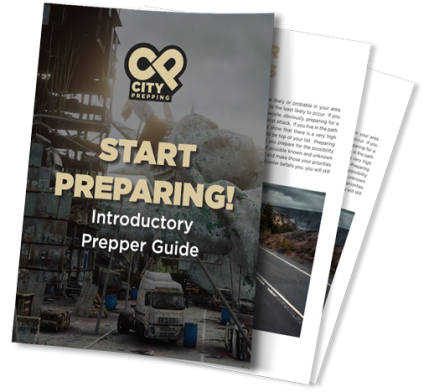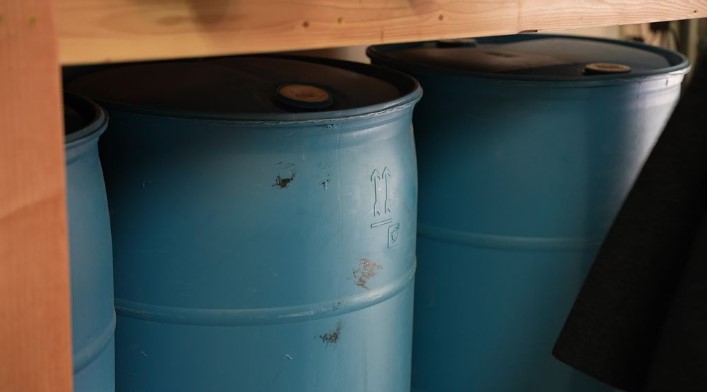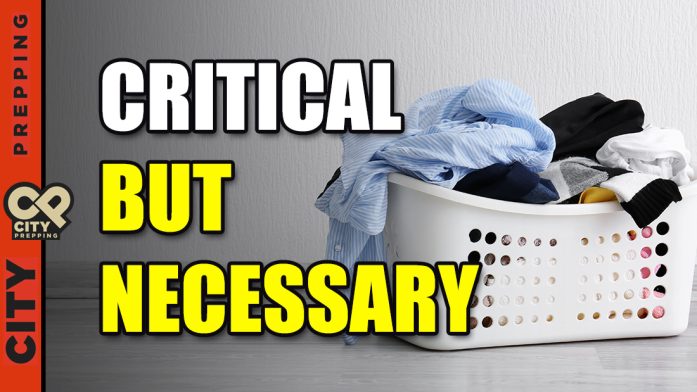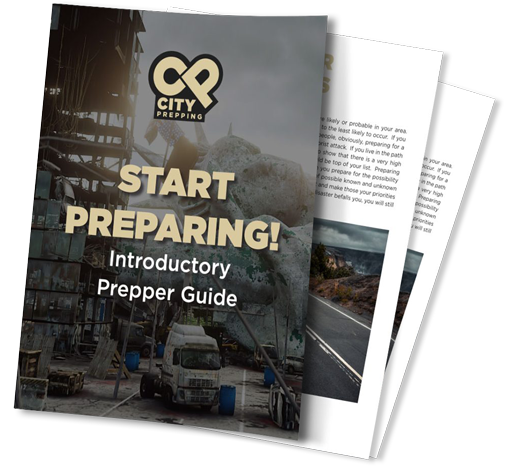Potential Economic Collapse This Year
“Markets take the stairs up and the elevator down.”
Anyone who could accurately forecast the real estate market wouldn’t tell you about it. We are not going to make any predictions or definitive conclusions here. We are not a financial advisor. We don’t give financial advice. But as someone who really looks through the window on this, we see some pretty disturbing things in our economic future. We will tell you that we do all we can to take a deep look at the warning signs we see and attempt to provide you with the most concise summary of them we can, so you can make the decisions that are right for you. We would not recommend anyone reading this blog make major financial decisions based off what we’re going to lay out in this blog. This is the conclusion we have come to, but you need to do your own research if you’re on the fence. We’re only laying out what we’re seeing and what we’re personally doing. We are pulling back from investing and keeping my money on the sideline as we see some very troubling indicators we’ll lay out in this video. That said, a substantial real estate problem is very likely coming our way, and it’s massive enough that anyone fiscally involved in the world will have a hard time side-stepping it. It will dramatically impact all markets worldwide and compound the problems we are already seeing with inflation, the supply chain, our food, and our water.
There’s a lot to unpack here, so let’s dive in…
Download the Prepper’s Recession Proof Economic Collapse Guide today. We’ll post a link below or visit cityprepping.com/moneyprep for a free guide to help you start recession-proofing your life and emerging even stronger when the economy recovers.
THE BURNING FUSE
 The burning fuse is making its way to a bomb nobody wants to talk about right now. That is the Commercial Mortgage Backed Securities–CMBS– market. The CMBS is similar to the MBS– Mortgage Backed Securities market. Without going into too much detail about the reasons, suffice it to say that the MBS market collapsing in 2008 led to a financial collapse, millions of foreclosures, and required the government to step in and save banks deemed “too big to fail”– the thinking being that if these big banks failed they would bring down the nation’s economy with them. Despite multiple companies being to blame for the sub-prime mortgages that led to the 2008 fiasco, not a single person was ever jailed, and no one fine was ever levied that came close to the fiscal damage inflicted or the profits gained by these massive institutions. In fact, the government had to fight against these institutions using the bail-out money to bonus their top executives even while everyday people were losing their homes in foreclosure.
The burning fuse is making its way to a bomb nobody wants to talk about right now. That is the Commercial Mortgage Backed Securities–CMBS– market. The CMBS is similar to the MBS– Mortgage Backed Securities market. Without going into too much detail about the reasons, suffice it to say that the MBS market collapsing in 2008 led to a financial collapse, millions of foreclosures, and required the government to step in and save banks deemed “too big to fail”– the thinking being that if these big banks failed they would bring down the nation’s economy with them. Despite multiple companies being to blame for the sub-prime mortgages that led to the 2008 fiasco, not a single person was ever jailed, and no one fine was ever levied that came close to the fiscal damage inflicted or the profits gained by these massive institutions. In fact, the government had to fight against these institutions using the bail-out money to bonus their top executives even while everyday people were losing their homes in foreclosure.
The CMBS is similar to the MBS but has a different set of much looser rules. It is far easier to get a commercial loan with assets you don’t actually own as collateral than it is to get a personal home loan. CMBS loans make up 1/3 of the U.S. real estate market and have more lenient underwriting guidelines. Most traditional home loans are highly scrutinized and limit what is possible for borrowers. That’s not true for a CMBS, and investors have flocked to this market because of the lack of scrutiny. CMBS loans surged to $109.1 billion in the U.S. last year, a 95 percent increase from 2020 and a 14-year high. CMBS loans are predicated on the amount of rent a property can potentially generate. These loans must be renegotiated when vacancies are up or rent is too high for the market given inflation and a recession. The holders of these packaged securities don’t want to renegotiate and don’t allow them to be renegotiated, which means the landlord of the building has to maintain the high rent or fork out their own money to make up the difference in income potential on the building securing the loan. This is why you see vacancies on commercial properties where the holding company or individual is unwilling to lower rents.
In March of this year, the CMBS market started its nose dive. Businesses had suffered dramatically from COVID lockdowns, and many were forced to close up and vacate commercial leases. The CMBS market isn’t just those commercial storefronts. Today, 15% of residential homes and 50% of all apartment buildings are purchased by investors, Wall Street, and foreign investment companies. These residential loans aren’t backed by the same collateral of the home’s value and the borrower’s ability to repay the loan. They are secured by margin debt. Basically, loans are made on inflated assets. When those inflated assets suffer from a harsh downward trend, guess what happens to that CMBS? It plummets.
If you want to see how devastating this can be, you can simply research the Chinese Evergrande bonds debacle. That’s so bad that the investors and banks continue to downplay it to try and prop up the falling house of cards that it is. It’s important to the U.S. market, though, because the same investors and banks that hold that worthless Chinese debt took out margin loans to buy trillions of dollars of equities that were then used for margin loans to buy trillions of dollars of U.S. commercial and residential housing. So, is China too big to fail? Will the rest of the world bail out China? Not likely. That house of cards will fall. The result will be banks and investors forcing the sale of all those commercial and residential assets.
HOW DOES THIS IMPACT YOU?
 It can be hard to imagine this impact on the everyday person. After all, we don’t have any direct investments in the China Evergrande Group, the second largest property developer in China. We don’t own any apartment buildings, and you might not either. A massive forced sell-off gluts the market with inventory and drops the prices on all properties. There goes any equity you may have in your home. There goes the great rate you had on your HELOC. Property management companies will seek to recoup money for their corporate landlords by raising rents and leases. Vacancies will surge, which brings down prices even further. Picture the commercial and residential markets spiraling further down into the depths of a global collapse as we have never seen before.
It can be hard to imagine this impact on the everyday person. After all, we don’t have any direct investments in the China Evergrande Group, the second largest property developer in China. We don’t own any apartment buildings, and you might not either. A massive forced sell-off gluts the market with inventory and drops the prices on all properties. There goes any equity you may have in your home. There goes the great rate you had on your HELOC. Property management companies will seek to recoup money for their corporate landlords by raising rents and leases. Vacancies will surge, which brings down prices even further. Picture the commercial and residential markets spiraling further down into the depths of a global collapse as we have never seen before.
Because so many of these CMBS loans are based on equities, when the commercial and real estate markets implode, so does the stock market. This is bad as it comes at a time when the markets are already over-inflated and over-leveraged, the world is sliding into a deepening recession, and war is driving up fertilizer, fuel, natural gas, and food prices, to name just a few of the soaring prices. All of this could come to a head in the Fall of this year, though we will see more and more signs of it until then. It’s following a similar trajectory as the 2008 crash, but it’s so much worse this time and has an even more extensive global reach. In 2008, the mechanism of the downfall was simply sub-prime loans and mortgage-backed securities. This time, we are looking at the much more intangible asset-backed securities, margin loans, and worthless Chinese bonds.
So, the darkness may descend as early as September or October of this year, when Q3 results are provided by companies, institutions, and the Federal Bank. Expect selloffs. Expect property values to plummet. Expect companies to lay off employees. Expect foreclosures to soar. Expect your retirement plan to tank. Basically, brace for one of the worst financial collapses ever. We are obviously not going to sugarcoat it here. All signs and charts we have seen point to a collapse of epic proportions. The Federal Reserve is now attempting to soften this inevitable blow by raising interest rates. This cools the market and slows down the rate of transactions. It also puts a little bit of a tool back in the Fed toolbox because, with interest rates still low, there isn’t anything you can do to throttle back.
WHAT IF NOTHING HAPPENS?
 Market collapses have been predicted in the past. We live in an odd time where we can ignore bad policies and practices as long as profits are made. We live in a time where we will willingly throttle the economic engine into the redline, so long as profits are made and regardless of the damage we will do to the engine. The consequences of redlining an engine are that it will eventually blow. One thing is for sure. We aren’t implementing any policy or change or launching any investigations that would equate to easing off the throttle. We are all collectively willing the market into stability, but our imagination doesn’t change the fundamentals underpinning the market. This is like saying we will always have highs and never have lows, even as we lose money by the day.
Market collapses have been predicted in the past. We live in an odd time where we can ignore bad policies and practices as long as profits are made. We live in a time where we will willingly throttle the economic engine into the redline, so long as profits are made and regardless of the damage we will do to the engine. The consequences of redlining an engine are that it will eventually blow. One thing is for sure. We aren’t implementing any policy or change or launching any investigations that would equate to easing off the throttle. We are all collectively willing the market into stability, but our imagination doesn’t change the fundamentals underpinning the market. This is like saying we will always have highs and never have lows, even as we lose money by the day.
In reality, governments and banks attempt to use the same tools to repair ever-worsening financial calamities. We will see the same old application of tools resulting in higher interest rates and increased tax rates. Even as the Fed prints more and more money to increase the monetary base, they will pull back from that and seek to reduce the monetary base after things turn South. Fiscal conservatism will suddenly be the policy of the day, and spending will slow to a crawl … so will economies.
Using the same tools is like knowing the water is poisoned but drinking it anyways. You tell yourself it’s okay, but you are slowly dying from the inside. So, while I may be wrong on the prediction of the end of Q3 for the greater unraveling, there’s no denying that it is an unavoidable occurrence that we won’t be able to sidestep. US home prices are on the cusp of a major correction due to “cratering” demand among cash-strapped buyers, so the signs in the residential market are there. There’s a house of cards already falling at the top, as we outlined here with the Evergrande Chinese bonds and the Commercial Mortgage Backed Securities market. There’s massive inflation alluding to a future of stagflation, and you have major investors running to secure their money in more stable assets. Unfortunately, they are running with assets they only theoretically own on paper and using these imaginary assets to run to the more stable real estate market through Commercial Mortgage Banking Securities.
We don’t think we have ever seen so many indicators and so many interlaced systems on the precipice of a cliff before. So, “what if nothing happens” should be replaced with “when it happens, how bad will it get?”
WHAT DOES THIS MEAN TO YOU?
 As we stated at the beginning of the blog, we are not a financial advisor, and we won’t give financial advice. How this will affect a person depends on where their money is. It depends on their debt-to-asset ratios. It depends on how over-extended a person is and how well they do or don’t live within their means. We know from my perspective that we have been looking at buying land. We have brought this up on the channel for the last year. We are finding that the prices are incredibly high, though the loans are plentiful. We are, personally, sitting on our hands right now. That’s also why we have been researching this real estate bubble to try and determine an entry point into the market. Any capital we do have, we are sitting on right now because we think that by Q3 of this year, it is likely that the downward slope is increasing in its steepness. By the beginning of next year, prices will drop, and by the middle of next year, today’s high prices will be a distant memory.
As we stated at the beginning of the blog, we are not a financial advisor, and we won’t give financial advice. How this will affect a person depends on where their money is. It depends on their debt-to-asset ratios. It depends on how over-extended a person is and how well they do or don’t live within their means. We know from my perspective that we have been looking at buying land. We have brought this up on the channel for the last year. We are finding that the prices are incredibly high, though the loans are plentiful. We are, personally, sitting on our hands right now. That’s also why we have been researching this real estate bubble to try and determine an entry point into the market. Any capital we do have, we are sitting on right now because we think that by Q3 of this year, it is likely that the downward slope is increasing in its steepness. By the beginning of next year, prices will drop, and by the middle of next year, today’s high prices will be a distant memory.
Though many were impacted by the crash of 2008, we think this crash will be far greater. We think the inflationary pressures we are feeling right now are just the start of where we are going. As a prepper, we’re prepping for a much more extensive economic collapse. Food, energy, and water scarcities are on the horizon. There are just too many problems right now between the ongoing Russo-Ukrainian conflict, the Chinese bond collapse, megadroughts, floods, and supply chain failures to hope for some great world-unifying fiscal solution. So take all that as a whole, buckle in, and get your preps in order.
Watch some of the other blogs on this site and similar channels to understand how to move more to a self-sufficient lifestyle. When you put prepping into practice in your life, you may find you only have one foot on the rug when it gets pulled out from under us. You may find you’re not even standing on the rug. One thing is for sure, when you prep today, you are determining where you will stand in the future.
As always, stay safe out there.









